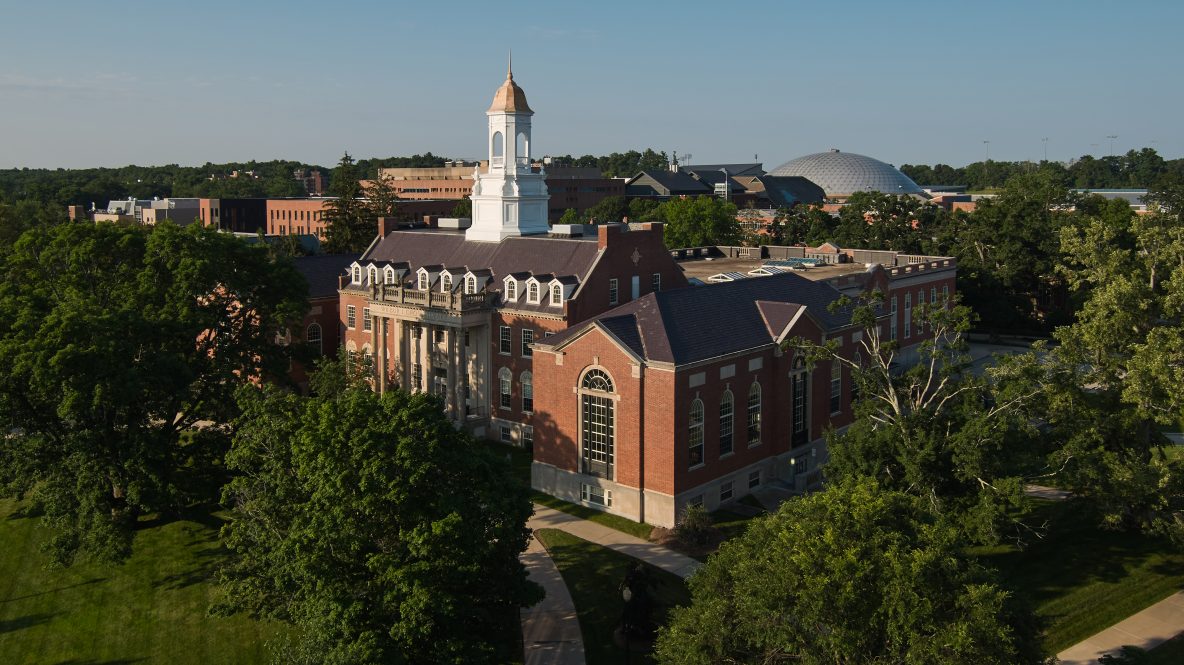While most of their counterparts elsewhere are still finishing up their college careers, the average UConn student has already graduated and is putting their degree to work in their fledgling career or graduate school.
According to new data, UConn students receive their undergraduate degrees in 4.1 years on average, making it among five universities tied for the fastest time-to-degree rate in rankings of 58 peer public research institutions.
That means UConn students save money by avoiding the need to enroll for extra semesters, and can begin earning salaries or entering advanced degree programs before many of their peers.
And despite graduating more quickly than many students elsewhere, UConn students are still receiving valuable experiential learning opportunities such as serving internships, conducting research as undergraduates, and studying overseas through UConn Education Abroad.
UConn identifies those and other kinds of experiential learning activities as “high-impact practices” in its work to maximize retention and graduation, saying they’re critical to keeping students engaged as they persevere toward their degrees.
Those practices and programs are also a key part of UConn’s mission to provide life-transformative education to every student, ensuring their experiences inside and outside of the classroom have a lasting positive impact long after they’ve graduated.
“It’s certainly a point of pride that UConn students graduate at the fastest rate among peer institutions, but what’s equally important is that they receive an abundance and diversity of opportunities for experiential learning during that time,” Interim President Radenka Maric says.
“We believe strongly that students should never have to choose between graduating on time and participating in these kinds of life-transformative experiences. Through intentional and strategic planning, UConn ensures they can do both,” she adds.
The speedy time to graduation is also important to students and their families because it helps them avoid the need to stay extra semesters to complete required credits, which helps make UConn more affordable, she says.
This can be particularly critical for low-income students and others who want the full benefit of a robust UConn experience but also want to quickly enter their chosen field and build their earning power without lingering education expenses.
“It really is also part of the broader conversation about affordability and access. To have our students be in the position to receive their bachelor’s degree in 4.1 years is truly exceptional,” says UConn Board of Trustees Chairman Daniel Toscano ’87 (BUS).
This year’s time-to-graduation figure of 4.1 years also marks an improvement from the 4.2-year average that UConn students previously experienced – also an impressive figure, and one that had still placed it among the best in that metric.
UConn officials attribute the time-to-degree success to several initiatives to which students have access before they are even enrolled – such as the ability to earn UConn credits while in high school – and which continue throughout their college careers in academic, social, and support programming.
Those high-impact practices were inventoried in a 2018 report by UConn’s Retention & Graduation Taskforce, and are among the kinds of activities proven by research to reinforce student success.
These practices include global learning, the First-Year Experience seminars, undergraduate research opportunities, internships, Learning Communities, capstone projects and courses, community-based service learning, and more.
“In light of the research, we know that high-impact practices make a difference in the success and experience of our students,” says Nathan Fuerst, UConn’s vice president for enrollment planning and management.
“As we emerge from two years in which the pandemic required more opportunities to be virtual than in person, we are more deliberate that ever in ensuring that our students have access to these opportunities that drive life-transformative education at UConn,” he says.
Other factors that contribute to the UConn’s strong 4.1-year “time-to-degree” metric include transfer-credit pathways established with the state’s regional universities and community colleges; academic support programs to help students get over bumps that might otherwise slow them down; and others.
UConn’s first-year students also often come to the University with credits from its highly successful Early College Experience (ECE) program. Thousands of high school juniors and seniors take UConn classes yearly and receive credits through that program, learning in their own schools from teachers who’ve been certified as UConn adjunct faculty members.
Many students also enter UConn with credits they earned by performing well on the College Board’s Advanced Placement exams. Some also take courses during UConn’s intersession and summer sessions, or enroll in more courses than their peers during regular semesters.
Nathan Wetherell ’22 (ENG), who will enter Pratt & Whitney’s Manufacturing Engineering Development Program when he graduates, was part of the University Scholar Program, a peer mentor in engineering, and other activities during his four years. He says juggling the various activities was worth it, and that he received strong support along the way.
“My UConn experience has been great,” says Wetherell, of South Windsor. “While COVID put a damper on my sophomore and junior year, my professors and advisors have been great in helping me stay on track as I navigated all of the professional and academic commitments.
“The advice and guidance I’ve received along the way have culminated in reaching all of my senior year milestones such as finishing up Senior Design, finding a job after graduation, completing my University Scholar project, and submitting my Honors thesis,” he adds.



